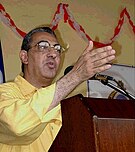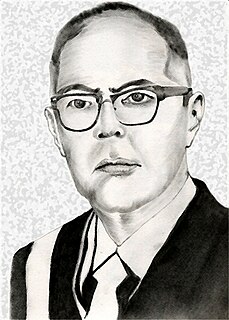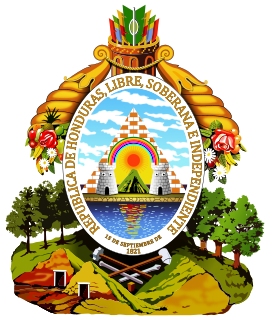| |||||||||||||||||||||||||
| |||||||||||||||||||||||||
| |||||||||||||||||||||||||
 |
|---|
| This article is part of a series on the politics and government of Honduras |
Legislative |
Judiciary |
|
General elections (Spanish : Elecciones generales de Honduras de 1997) were held in Honduras to elect a president and parliament on 30 November 1997. They were also the first elections in which the left wing Democratic Unification Party was allowed to stand.

Spanish or Castilian is a Romance language that originated in the Castile region of Spain and today has hundreds of millions of native speakers in the Americas and Spain. It is a global language and the world's second-most spoken native language, after Mandarin Chinese.

Honduras, officially the Republic of Honduras, is a country in Central America. In the past, it was sometimes referred to as "Spanish Honduras" to differentiate it from British Honduras, which later became modern-day Belize. The republic of Honduras is bordered to the west by Guatemala, to the southwest by El Salvador, to the southeast by Nicaragua, to the south by the Pacific Ocean at the Gulf of Fonseca, and to the north by the Gulf of Honduras, a large inlet of the Caribbean Sea.

The President of Honduras officially known as the President of the Republic of Honduras, is the head of state and head of government of Honduras, and the Commander-in-chief of the Armed Forces. According to the 1982 Constitution of Honduras, the Government of Honduras consists of three branches: Executive, Legislative and Judicial. The President is the head of the Executive branch, their primary duty being to "Execute and enforce the Constitution, treaties and conventions, laws and other legal dispositions." The President is directly elected for a four year term.





